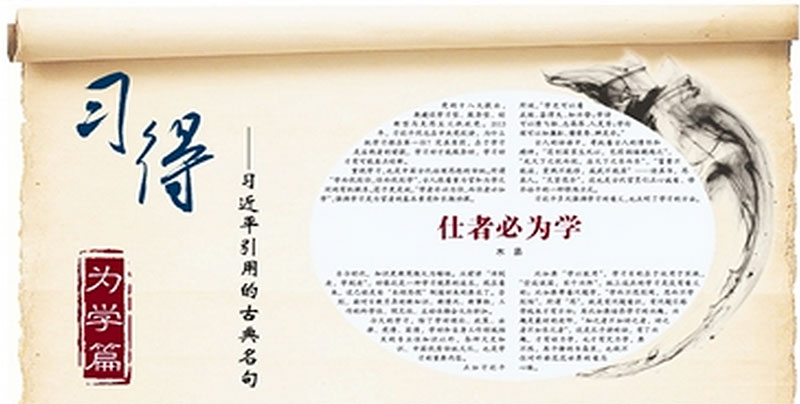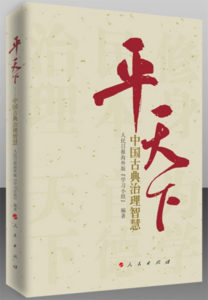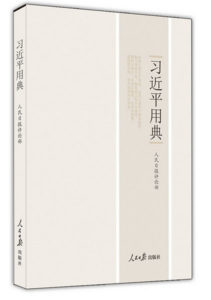In September 2013, Reuters reported ‘three independent sources’ as saying that Xi Jinping believes China is ‘losing its moral compass’ as a result of the country’s extraordinary economic growth and the national mania for making money. Xi believes that Confucianism, Buddhism and Daoism can help to provide a moral bulwark against corruption. One of Reuters’ sources claimed that Xi realises his anti-corruption campaign can only ‘cure symptoms’ while ‘reform of the political system and faiths are needed to cure the disease of corruption’.
Former president Hu Jintao had famously claimed that Confucianism would help construct a ‘harmonious society’. In diagnosing a moral illness at the heart of contemporary China and prescribing a treatment of faith, Xi seems to go one step further. This does not herald a wholesale liberalisation of the party-state’s approach to religion. Rather, Xi reportedly said that while ‘traditional cultures will not be comprehensively popularised … attacks on them will be avoided’. For the leader of an officially atheist ruling party to make these statements is, if true, extraordinary.

Xi Jinping’s use of classical aphorisms as promoted by the People’s Daily
Source: paper.people.com.cn
Xi’s respect, even reverence, for traditional Chinese cultural traditions (and their usefulness in the present) extends to Chinese literature and philosophy: he leavens his political essays, speeches and commentaries on contemporary society with quotations in literary Chinese from both pre-modern and ancient texts. No leader in China has so ostentatiously drawn from the Chinese literary tradition since the People’s Republic of China’s first, Mao Zedong.
In May 2014, the People’s Daily 人民日报 helpfully published six feature articles grouping Xi’s chosen quotations under the headings of ‘cultivating morality’, ‘learning’, ‘the virtues of officials’, ‘All-Under-Heaven’ 天下, ‘the foundations of the people’ and ‘the principles of government’. The People’s Daily editor provides the source for each quotation, a translation into modern Chinese and briefly discusses its relevance to China today, with a focus on the appropriate values and behaviour of party and public officials. This first of the six feature articles, selections from which are translated here, appeared in the People’s Daily on 8 May 2014.
The Chairman says: Xi Jinping quotes the classics
Wherever the will urges, nowhere is too far to venture:
Neither mountains nor seas can contain it.
If there is will, no barrier can stop it:
The best armies and toughest armour are no defence.
The Complete Anthology of Aphorisms, Qing dynasty
Quoted in Xi Jinping’s speech at the National Organisational Work Conference, 28 June 2013.
Commentary:
Why does one become an official? What is being an official for? Is it just to secure a job for life and profit from a steady flow of cash? Or is it to take hold of an official seal and use power for personal gain? Or is it to serve the people? One’s values determine the answer to these questions. Leading cadres all face the three big questions: ‘Who is it for?’, ‘Who can I rely on?’ and ‘Who am I?’ Before answering these three questions, they must first ask themselves, ‘Where is my will?’
As if we were on the brink of a deep gulf,
As if we were treading on thin ice.
The Book of Songs, Zhou dynasty, translated by James Legge
Quoted in Xi Jinping’s speech at the celebratory conference marking the eightieth anniversary of the establishment of the Central Party School, and the opening ceremony of the 2013 Spring Festival term, 1 March 2013.
Commentary:
When Xi Jinping quoted these words he was explaining that leading cadres of the Party should always revere the authority that is granted to them by the people and respect the confidence that is placed in them by the organisation. They should use that power with great caution and never become even the least bit lazy.
There is nothing more visible than what is secret, and nothing more manifest than what is minute. Therefore the superior man is watchful over himself, when he is alone.
The Record of Ritual, Western Han dynasty, translated by James Legge
Quoted in Xi Jinping, ‘Seeking Out the Elevated Realm of “Watching Over Oneself When Alone” ’ from his New Conversations in Zhejiang 之江新语, 2007.
Commentary:
In their letters of repentance many corrupt officials say that sooner or later, after first taking a bribe, they felt ill-at-ease: this unease is the root of goodness. If they had promptly restrained their greed and guarded their good heart, they would not have slipped into the abyss. ‘Watching Over Oneself when Alone’ has been a model for people past and present. Constantly consult your conscience to see whether you feel guilt.
We consider people to be people because of speech. If a person is unable to speak, how can he be considered a person? We consider speech to be speech because of trust. If something is spoken without trust, how can it be considered speech?
The Guliang Commentary on the Spring and Autumn Annals, Warring States period
Quoted in Xi Jinping, Act on Real Cases, Escape from Old Models, 2006.
Commentary:
People are social animals who relate through speech. This is what separates people from the animals. Speech enables the transmission of information. We understand each other through continuous interchange, and it is how we express confidence in each other. Trust is the foundational morality of social interaction. In reality, we come across many people who are good at making unfounded opinions sound wise, but those opinions can never be trusted as they are not grounded in reality. The more beautiful the words, the more there is an overdraft on trust.
Following goodness is like climbing a mountain, following evil is like being swept away in a landslide.
The Discourses of the States, Warring States period
Quoted in Xi Jinping’s speech at the Symposium for Outstanding Youth Delegates from All Walks of Life, 4 May 2013.
Commentary:
If people are strictly disciplined almost any problem can be overcome. But if there is no external supervision, it is very hard to overcome moral inertia and always to be aware of nurturing a good heart. If people want to abandon evil and follow good, they have to have a powerful faith in their hearts for a bulwark. They also need good teachers and helpful friends for mutual criticism. They must be strong in their resolution, and careful with the friends they make. This is especially important for young leading cadres.

Calm the World — Classical Chinese Governance and Wisdom, a publication inspired by Xi Jinping’s aphorisms, published by the People’s Daily Overseas Publishing House in 2015
Photo: pph166.com
The commander of the forces of a large state may be carried off, but the will of even a common man cannot be taken from him.
The Analects, Zhou dynasty translated by James Legge
Quoted in Xi Jinping, ‘A Discussion on Taking up a Government Post’, March 1990, from Cast off Poverty, 1992.
Commentary:
In this crucial period of reform we often face doubts and evasions, and see people looking on from the sidelines. If leading cadres hold true to their ambitions then all obstacles can be surmounted and we can advance with courage. If not, then how will we ass-ume the heavy responsibility of history?
To be above the power of riches and honours to make him dissipated, of poverty and mean condition to make him swerve from principle, and of power and force to make him bend.
Mencius, Warring States period, translated by James Legge
Quoted in Xi Jinping’s speech at the celebratory conference marking the eightieth anniversary of the establishment of the Central Party School, and the opening ceremony of the 2013 Spring Festival term, 1 March 2013.
Commentary:
In this new period, leading cadres are faced with many dangerous and difficult tasks, but also many temptations. To handle the easy situations without showing arrogance and the difficult situations without complaint, they must first ask themselves where ‘the anchor of morality and justice’ is in their hearts.
You may shatter rock but you cannot take away its hardness, you may grind cinnabar but you cannot take away its redness.
The Springs and Autumns of Mister Lü, Qin dynasty
Quoted in Xi Jinping’s speech at the Meeting for Summarising the First Stage of the Mass Line Educational Campaign and Planning the Second Stage.
Commentary:
Hardness is an intrinsic quality of rock, and red is the natural colour of cinnabar. It is impossible to change these characteristics with force. Applying this to people, is it possible for leading cadres to withstand trials and tribulations in today’s comprehensive deepening of reform? Faced with complex situations and all kinds of inducements they must first ask themselves, ‘What are the intrinsic qualities of a Communist Party member?’
The gentleman constantly examines himself for transgressions
Kangcangzi, Tang dynasty

Classical Aphorisms of Xi Jinping, published by the People’s Daily Overseas Publishing House in 2015
Photo: theory.people.com.cn
Quoted in Xi Jinping, ‘Being a Man and Being an Official’ from his New Conversations in Zhejiang, 2007.
Commentary:
Capable men are tolerant so they are unwilling to point out your shortcomings. Lesser men flatter you as they have a favour to ask. Relatives will submit to your whims because they cherish you. Over time, these conditions can easily give rise to an illusion of perfection. The process of cultivation must be like looking into a mirror, constantly reflecting on yourself, inspecting yourself for insufficiencies.
Cultivate the heart and regulate the body, then you will be able to govern All-Under-Heaven.
Wang Anshi, Commentary on the ‘Great Plan’ section of the Book of History, Song dynasty
Quoted in Xi Jinping, ‘Being a Man and Being an Official’ from his New Conversations in Zhejiang, 2007.
Commentary:
The Chinese understand that however exquisitely organised a political system is, it must be put into practice by real people. The cultivation level of individuals is the most basic thing. Being able to ‘cultivate the heart and regulate the body’ is an essential accomplishment for those in government, and a prerequisite for seeking a career as an official. Nowadays, when the central authorities employ people they pay great attention to both ability and integrity, and are primary concerned with virtue. In this they follow practices that come directly from the wisdom of the ancients.
Remaining hard and strong after 1000 buffetings and 10,000 beatings, no matter that you are blown in all directions.
Zheng Banqiao, ‘Bamboo Rocks’, Qing dynasty
Quoted in Xi Jinping’s speech when inspecting Peking University, 4 May 2014.
Commentary:
Bamboo grows tall even in soil that is infertile, and remains stubborn and tough when buffeted and blown around. In this new period, leading cadres face all sorts of dilemmas in reform, and all manner of temptation to make a profit. China’s development faces complex international and domestic circumstances. We must base ourselves in historical conditions and contemporary realities, stay sure on our path of development, and remain confident in our ideology and institutions.



